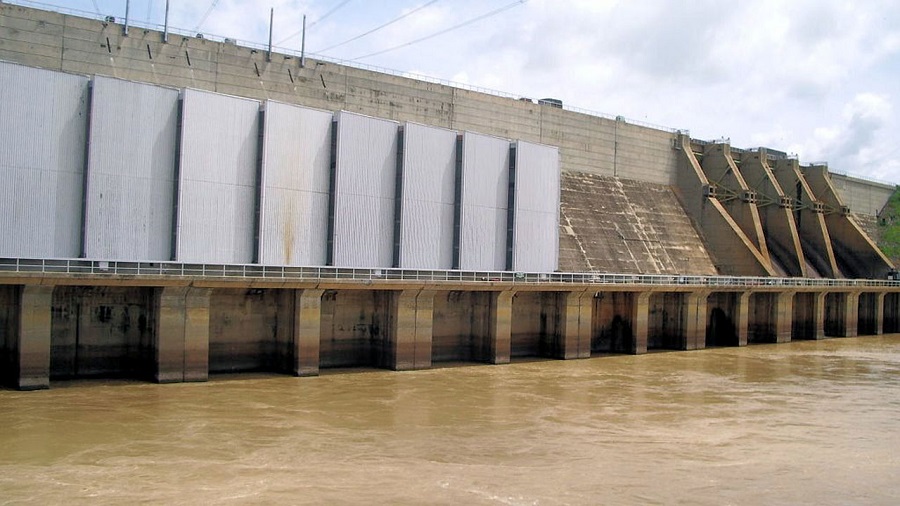Hydropower is one of the oldest sources of mechanical and electrical energy and it remains the largest source of total renewable electricity generation in the world. Over 25% of the energy consumed globally is renewable and hydropower accounts for a whopping 17%.
Hydropower or hydroelectric energy is a form of energy that harnesses the power of water in motion—such as water flowing over a waterfall—to generate electricity. It is a form of renewable energy that uses the water stored in dams, as well as flowing in rivers to create electricity in hydropower plants. The falling water rotates the blades of a turbine, which then spins a generator that converts the mechanical energy of the spinning turbine into electrical energy.
Hydropower is one of the most regarded renewables, not just for its abundance and natural replenishing nature, but also for a good number of reasons. It is a clean fuel source, as energy is produced totally independent of burning any fuel, implying zero pollution to the environment. Hydroelectric power is also a domestic source of energy thus allowing each state to produce their own energy without being reliant on external fuel sources.
But, amidst all these, hydropower generation still suffers a handful of setbacks. One of the most delicate of these challenges is the problem of transboundary water conflicts.
Transboundary waters – the aquifers, lakes and river basins shared by two or more countries – support the lives and livelihoods of vast numbers of people across the world. The conflict in this sense occurs where the exploitation by one country – the upstream riparian (UP) – affects the activities of the downstream riparian (DOWN) or vice versa. A good scenario is where the upstream riparian (UP) is a hydropower producer and the downstream riparian (DOWN) withdraws water for agricultural irrigation.
261 rivers cross international boundaries, 145 nations have part of their territories in transboundary river basins and there are approximately 300 transboundary aquifers, helping to serve the 2 billion people who depend on groundwater.
Over 40 per cent of the world’s population live within transboundary basins, making the successful management of this resource central to poverty reduction, sustainable development and long-term political stability. This makes transboundary conflicts a huge challenge. Furthermore, the International Energy Agency (IEA)’s flagship Net-Zero by 2050 report, published in May 2021, suggests the world will need 2,600 GW of hydropower capacity by mid-century to have a chance at keeping global temperature rises below 1.5 degrees Celsius. This means we need to build the same amount of capacity in the next 30 years as in the previous 100. The International Renewable Energy Agency (IRENA) had also previously stated that the world needs around an additional 850 GW of new hydropower to keep global warming below 2 degrees Celsius. To reach this target would require yearly growth of around 2 per cent a year on average. It is not in doubt that we need more hydropower stations and transboundary conflicts threaten that.
In response, more than 3,600 agreements and treaties have been signed to help in the resolution of these conflicts. Cambodia, Laos, Thailand and Vietnam, have been able to cooperate since 1957 within the framework of the Mekong River Commission. Since 1955 Israel and Jordan, have held regular talks on the sharing of the Jordan River, even as they were until recently in a legal state of war. The Indus River Commission survived two wars between India and Pakistan. A framework for the Nile River Basin was agreed in February 1999 in order to tackle poverty and spur economic expansion in the region by promoting equitable use of, and benefits from, common water resources. The nine Niger River Basin countries have agreed on a framework for a similar partnership. These cases reflect two important elements of international water resources cooperation: the need for an institution to effectively develop a process of engagement over time; and well-funded third-party support trusted by all factions.
These treaties are a good step towards international cooperation and the facilitation of transboundary water cooperation, but a closer look at them still reveals significant weaknesses. First, there is little or no implementation and added to that, there are no workable monitoring provisions, enforcement mechanisms, and specific water allocation provisions that address variations in water flow and changing needs. The 1997 United Nations Convention on Non-Navigational Uses of International Watercourses is one of the international instruments, which specifically focus on shared water resources. It established two key principles to guide the conduct of nations regarding shared watercourses: “equitable and reasonable use” and “the obligation not to cause significant harm” to neighbours. As impressive as this law sounds, it is still dependent on the concerned nations.
These laws are not sufficient and more needs to be done. In future, it is likely that more such conflicts will emerge since only 10 per cent of the world’s hydropower potential is currently being exploited and efforts are in place to build more. The urgency of the situation requires prompt action and joint efforts from both concerned states and appropriate bodies.
Ude Fortune Chiziterem is a renewable energy enthusiast and writer.













Brilliant!